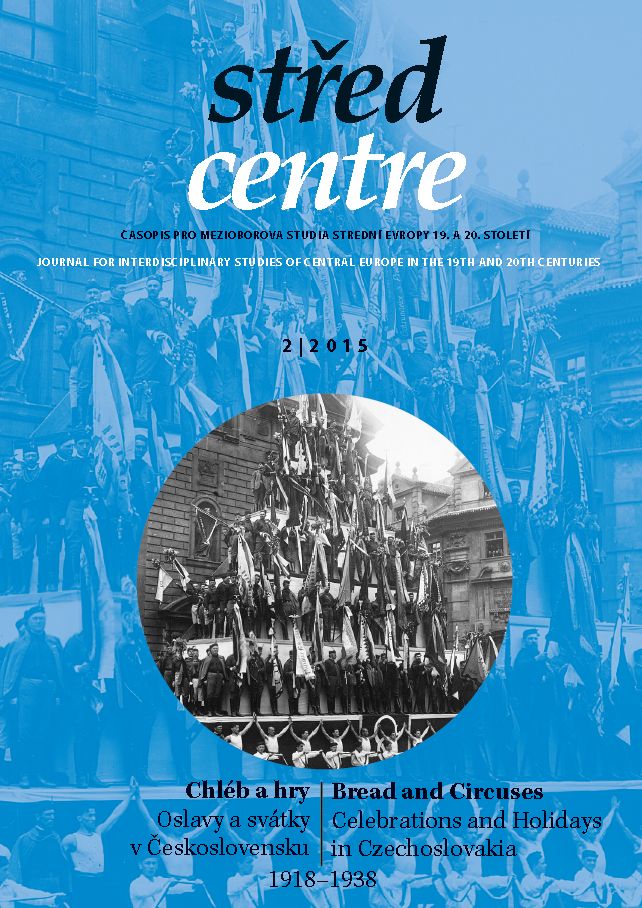Katolická církev, úprava svátkového práva a Marmaggiho aféra v meziválečném Československu
The Catholic Church, the Amendment to the Holiday Legislature, and the Marmaggi Affair in the Interwar Czechoslovakia
Author(s): Michal PehrSubject(s): Diplomatic history, Political history, Interwar Period (1920 - 1939)
Published by: AV ČR - Akademie věd České republiky - Masarykův ústav
Keywords: Catholic Church; Interwar Czechoslovakia; Marmaggi Affair; Political Catholicism
Summary/Abstract: The study focuses on the issue of celebrating Catholic holidays as state holidays after the downfall of the Habsburg Monarchy and the creation of Czechoslovakia. Th e new state pursued reforms that would decrease the number of these holidays. The justifi cation for the reforms’ was the process of church and state separation, together with the claim that there is no reason for the Republic to have so many holidays, especially when an 8-hour workday had been passed. However, these eff orts of the architects of the interwar Czechoslovakia were basically unsuccessful. This can be seen in particular during the debates of the mendment to the holiday and commemorative day law (law 5/1925 Coll. from April 3rd, 1925). This law was a fundamental turning point. In Czechoslovakia, the law was the only one of its kind, and was the fi rst to codify church holidays as state holidays. Prior to 1918, the concept of state holidays did not exist in Austria (unlike Hungary), because only church holidays were celebrated. Here, political Catholicism managed to preserve most of the holidays that were essential to Catholics. The Catholics’ only significant compromise was the holiday commemorating the religious thinker and medieval reformer Jan Hus. Introducing this holiday was the subject of probably the most serious dispute in Czechoslovak-Holy See relations, and indirectly provoked significant domestic unrest. The tumultuous celebrations of Hus’ holiday in July 1925 after the law was passed brought about the so-called Marmaggi Affair – the papal nuncio’s demonstrative departure from Prague to Rome, which seriously damaged mutual relations. Resolving this dispute took three long years, and resulted in a modus vivendi agreement between Czechoslovakia and the Holy See in 1928. Th is agreement, set in motion by the tumultuous celebrations of Hus’s holiday, paradoxically foreshadowed the future positive relations in interwar Czechoslovakia’s second decade of existence, when the Catholic Church became one of First Republic Czechoslovakia’s most important supporters.
Journal: Střed. Časopis pro mezioborová studia Střední Evropy 19. a 20. století
- Issue Year: 7/2015
- Issue No: 2
- Page Range: 89-113
- Page Count: 24
- Language: Czech

